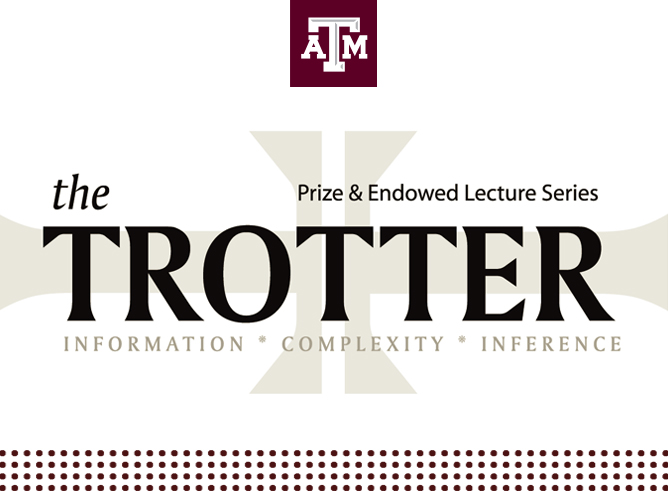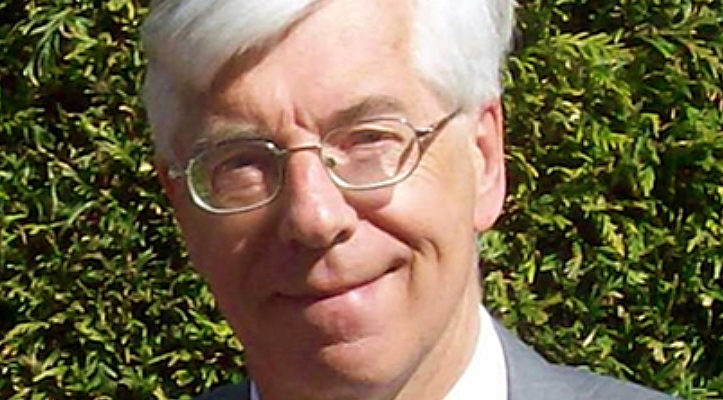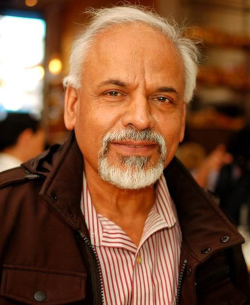
Two respected scientists and accomplished researchers will visit the Texas A&M University campus this week to present their views on faith, science and society as part of the university’s 19th annual Trotter Endowed Lecture Series.
Dr. Denis R. Alexander, founding director emeritus of The Faraday Institute for Science and Religion at Cambridge University, and Dr. Katepalli Sreenivasan, University Professor and Eugene Kleiner Professor for Innovation in Mechanical Engineering at New York University, will deliver a joint public lecture Wednesday, Apr. 6, at 7 p.m. in Rudder Theatre.
No tickets or RSVPs are required for the presentation, which will feature a pre-recorded talk from Alexander and an in-person appearance by Sreenivasan along with a question-and-answer segment. The hybrid event is free and open to the public and will be followed by a reception in Rudder’s first-floor exhibit hall.

Alexander’s talk, “Are We Slaves to Our Genes?,” will draw from his most recent book of the same title to explore the role of either nature or nurture in shaping human destiny and also critically discuss today’s continuing challenges to notions of human freedom and moral responsibility along with the resulting theological implications.
Sreenivasan’s talk, “sent by whom, flies out thither the mind?,” seeks to dwell on both science and spirituality, focusing on the concept that, because the human situation is irretrievably linked to the notion of suffering, it is plausible that human potential may be more fully achieved by including the spiritual realm as a powerful part of human life.
In addition to being an Emeritus Fellow of St. Edmund’s College, Alexander is a past chair of the Molecular Immunology Programme and head of the Babraham Institute Laboratory of Lymphocyte Signalling and Development at Cambridge. Previously, he was at the Imperial Cancer Research Laboratories in London (now Cancer Research UK) and spent 15 years developing university departments and laboratories overseas — in the latter case as an associate professor of biochemistry in the Medical Faculty of the American University of Beirut, Lebanon, where he helped to establish the National Unit of Human Genetics. From 1992 to 2013, Alexander was editor of the journal Science and Christian Belief. He also served as a member of the executive committee of the International Society for Science and Religion.

Alexander delivered the Gifford Lectures at St. Andrews University in 2012 that were published by Cambridge University Press in August 2017 under the title Genes, Determinism and God. Alexander’s latest books are Is There Purpose in Biology? (Oxford: Lion, 2018) and Are We Slaves to Our Genes? (CUP, 2020). In October 2018, he defended the motion “This House Believes that Science Will Never Answer Life’s Biggest Questions” at Oxford University’s famous debating society in front of 750 students (a 10-minute talk that can be found on YouTube), easily winning the motion.
Sreenivasan holds professorships in the Department of Physics, Courant Institute of Mathematical Sciences and Department of Mechanical and Aerospace Engineering at NYU. Previously, he was dean of the NYU Tandon School of Engineering, president of former Brooklyn Polytechnic, director of the International Centre for Theoretical Physics in Trieste, Italy, and held faculty appointments at the University of Maryland and Yale University. He has been a visiting professor at Caltech, Rockefeller University, Cambridge University and the Institute for Advanced Study at Princeton.
Sreenivasan has been elected to the Indian Academy of Sciences, Indian National Science Academy, Academy of Sciences for the Developing World (TWAS), African Academy of Sciences, U.S. National Academy of Sciences and National Academy of Engineering, American Academy of Arts and Sciences, and Accademia die Lincei in Rome. His honors include a Guggenheim Fellowship; American Physical Society (APS) Otto Laporte Award, Fluid Dynamics Prize, and Leo Kadanoff Prize; American Society of Civil Engineers von Karman Medal; Society of Engineering Science G.I. Taylor Medal; American Society of Mechanical Engineers Charles Russ Richards Award; Indian Institute of Science Distinguished Alumnus Award and Centennial Professorship; Indian Academy of Sciences Sir C.V. Raman Visiting Professorship; International Prize and Gold Medal in memory of Professors Modesto Panetti and Carlo Ferrari; Assembly of World Conference on Experimental Heat Transfer, Fluid Mechanics and Thermodynamics Nusselt-Reynolds Prize; and Duty Society and Indian Society of Applied and Industrial Mathematics President Dr. Zakir Husain Memorial Award. In recognition of his work on international science, he has received the Brazilian Government and Academy of Sciences National Order of Scientific Merit; UNESCO Medal for Promoting International Scientific Cooperation and World Peace; APS Dwight Nicholson Medal; and AAAS Award for International Scientific Cooperation. He is an inaugural fellow of the Hagler Institute for Advanced Study at Texas A&M (Class of 2012-13).
The Trotter Prize and Endowed Lecture Series seeks to illuminate connections between science and religion, often viewed in academia as non-overlapping if not rival world views. The series was established in 2001 by Dr. Ide P. Trotter Jr. ’54 and Luella H. Trotter with a matching contribution from ExxonMobil Corp. to honor Ide P. Trotter Sr., former dean of Texas A&M University’s Graduate School, and to recognize pioneering contributions to the understanding of the role of information, complexity and inference in illuminating the mechanisms and wonder of nature.
For more information on the event, contact Jennifer Holle in the College of Science Dean’s Office at (979) 845-8817 or j-holle@tamu.edu.
To learn more about the history of the Trotter Lecture Series and past presenters, visit https://science.tamu.edu/trotter/.
